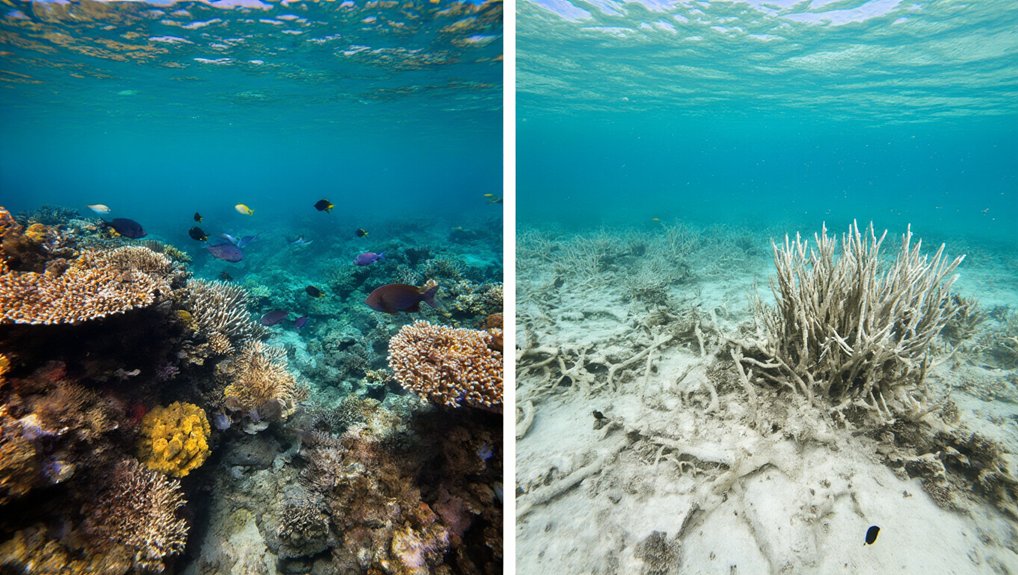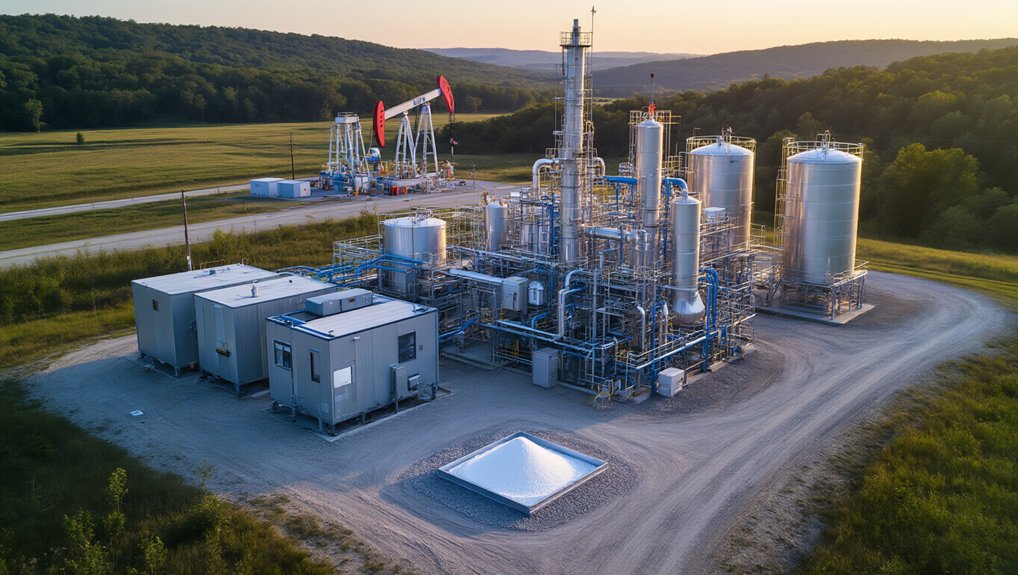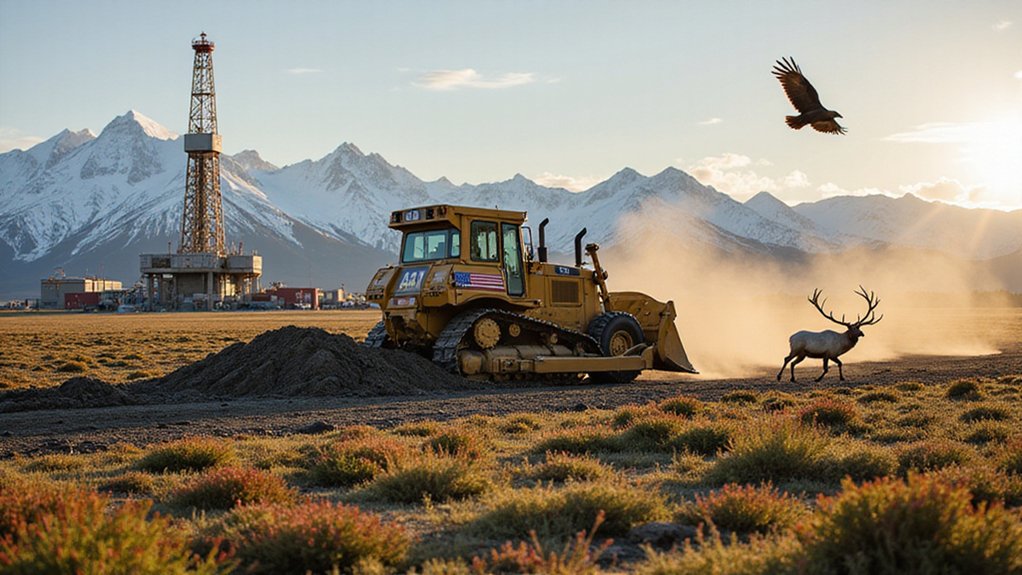While humans debate the reality of climate change, coral reefs around the world are dying in real time. The numbers are staggering—84% of global coral reefs experienced bleaching-level heat stress in just the past two years. Not kidding. Scientists aren’t mincing words either, calling the current global bleaching event “unprecedented.” Eighty-two countries with reefs are watching their underwater jewels turn ghostly white.
Ocean warming is the main culprit. No surprise there. But reefs are getting hit from all sides—overfishing strips away key species, pollution chokes coral polyps, and coastal development tramples entire reef systems. It’s death by a thousand cuts, really.
The oceans have a fever, and coral reefs—battered by pollution, fishing, and bulldozers—are paying the ultimate price.
And now scientists have had to create new alert levels because things are getting so bad. Level 5 bleaching? That’s over 80% mortality risk. Game over for those reefs.
These aren’t just pretty underwater environments we’re losing. Coral reefs support 25% of all marine life. Twenty-five percent. Fish you eat, creatures you’ve never heard of—gone when the corals collapse. The economic math isn’t complicated either: billions in tourism, critical coastal protection for millions of people, food security for entire nations. All at risk.
Restoration efforts? They’re like putting a Band-Aid on a gunshot wound. Global funding falls catastrophically short—just restoring 1.4% of degraded reefs could cost up to $16.7 trillion. Good luck with that.
If trends continue, 90% of coral reefs could vanish by 2050. That’s not some distant future—that’s when today’s teenagers hit middle age. Ocean temperatures keep climbing, bleaching events are becoming annual affairs, and reefs simply can’t adapt fast enough. The fossil fuel dependence is directly responsible for the marine heatwaves now occurring at triple their previous rates.
The monitoring networks keep tracking the decline while the alert scales keep adding new danger levels. Meanwhile, corals keep dying. The Global Coral Reef Monitoring Network is working on the most comprehensive assessment of reef health to date, building on decades of observations. The simple truth? We’re witnessing an ecosystem collapse in real-time. And we’re mostly just watching it happen.
References
- https://icriforum.org/4gbe-2025/
- https://mscfoundation.org/news/status-of-coral-reefs-of-the-world-2025-report
- https://news.mongabay.com/2025/04/scientists-warn-coral-restoration-cant-keep-pace-with-global-reef-collapse/
- https://gcrmn.net/2025-report/
- https://www.coralguardian.org/en/coral-reefs-at-risk/









